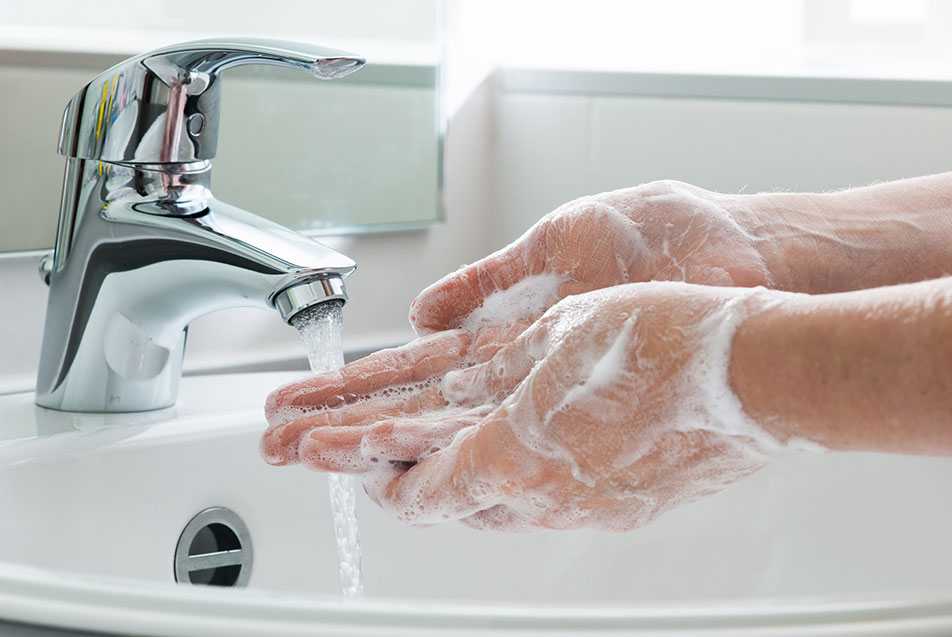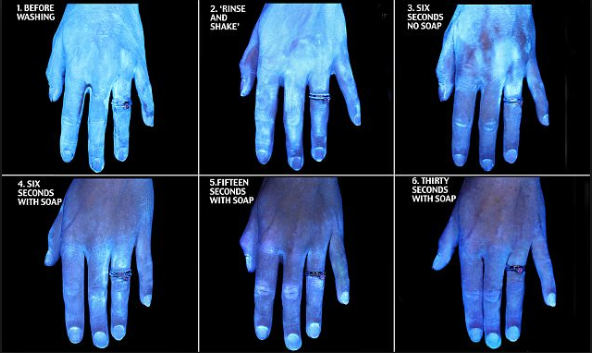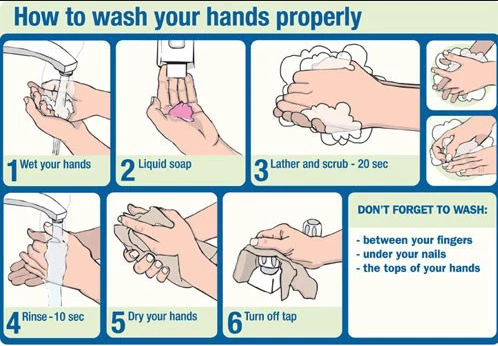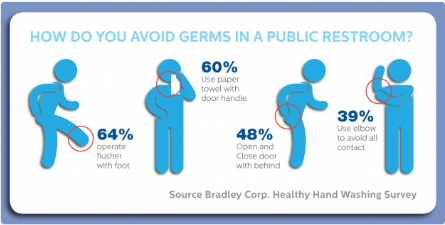
The Centers for Disease Control and Prevention (CDC) report that an estimated 50% of deaths associated with diarrheal disease could be eliminated if the general population simply adopted a strict soap hand-washing routine. Benjamin Linker, PharmD Candidate, Manchester University College of Pharmacy, with assistance from Sean Hoos, PharmD, BCPS, Parkview Regional Medical Center, offers this helpful information for those still stalling at the sink.
Why should I wash my hands?
Throughout a normal day, the average person exposes themselves to countless contaminates that can be spread to cause infection or disease. Many diseases and infections can be drastically prevented with hand washing, including influenza, respiratory infections, digestive infections and salmonella. Not only can hand washing prevent you from contracting diseases, but it can significantly help other people with weakened immune systems, like the elderly, young children, people with medical conditions causing a weakened immune system, and those who are ineligible to be vaccinated.

When should I wash my hands?
- After using the restroom
- Before and after cooking food
- Before eating food
- Before and after cleaning a wound
- Before and after being in contact with someone who is sick
- After touching anything involving animals (petting, feeding, cleaning up waste, etc.)
- After touching garbage
What is the proper way to wash my hands?
- Soak hands in running water, then turn off faucet to conserve water.
- Apply soap and scrub hands for at least 20 seconds, including between fingers and under nails.
- Rinse hands under running water
- Dry hands using an air dryer or clean towel.

Bathroom Tips to Reduce Contamination
- Use foot to flush public toilets when possible
- Use paper towel on public stall door handles
- Open and close doors using your backside or a paper towel
- Use elbow to operate paper towel dispensers and air dryers

Frequently Asked Questions (FAQs)
Q: Will warmer water make my hands cleaner?
A: There is no conclusive evidence showing that hot water offers any benefit over cold water in the reduction of germs on hands. Hot water does have a higher tendency to cause skin irritation, and be more costly toward energy efficiency.
Q: Does soap kill bacteria?
A: When using soap, the goal should not be to kill germs. Soap is used to assist water in washing germs off of hands by creating an environment difficult for germs to stick to. Some soaps do contain antibacterial agents, like Triclosan. However, soaps with antibacterial agents are not recommended for common use due to a lack of evidence showing any superiority in performance over common soaps outside of a hospital setting.
Q: Do I really need to dry my hands?
A: Studies have shown that germs are more likely to be transferred between wet hands than dry hands. Recent studies assessing the bacterial risk involved with air dryers revealed that, while air dryers do not particularly produce bacteria, hand dryers expose our hands to notably higher amounts of bacteria compared to paper towels by circulating bacteria throughout the air. However, the amount of exposure to bacteria by air dryers can be notably decreased by using hand dryers with a HEPA filter.
Sources:
Huesca-Espitia LDC, Aslanzadeh J, Feinn R, Joseph G, Murray TS, Setlow P. Deposition of bacteria and bacterial spores by bathroom hot-air hand dryers. Appl Environ Microbiol. 2018. 84:e00044-18
Center for Disease Control and Prevention: Wash Your Hands. Last updated: 04/02/2018. Accessed: 09/26/2018.



